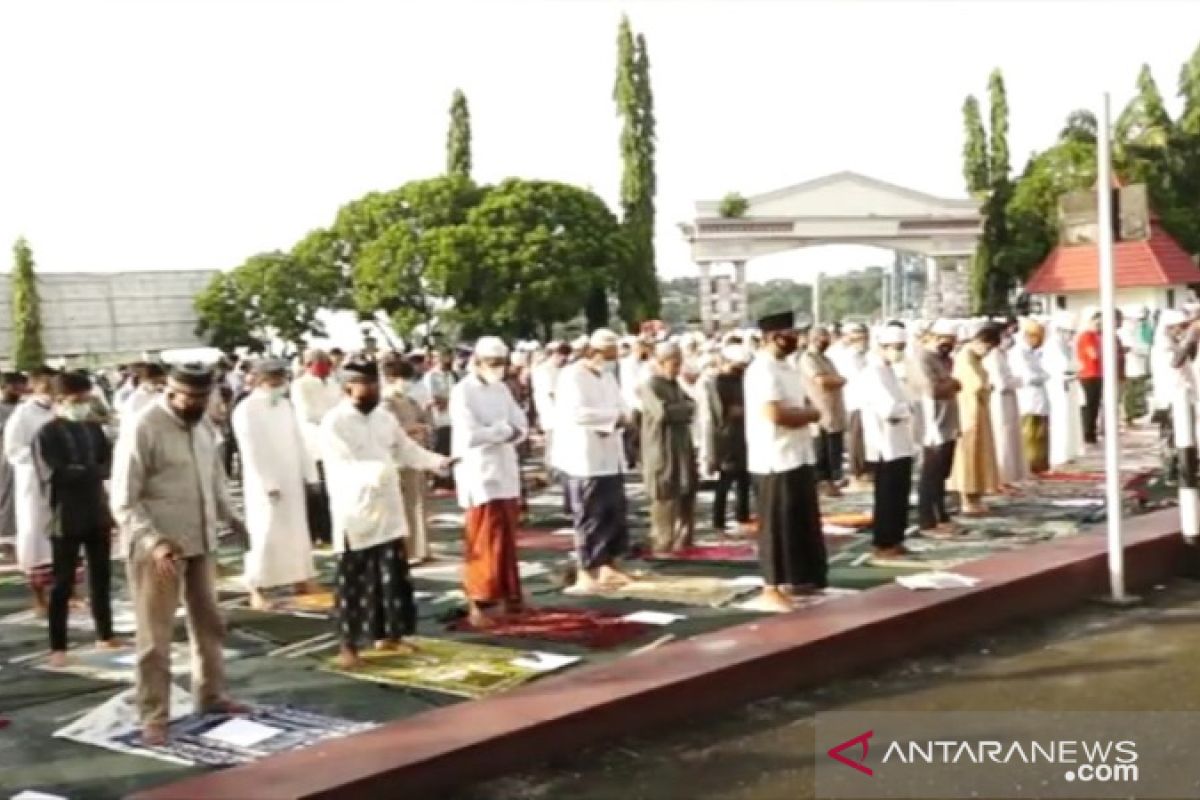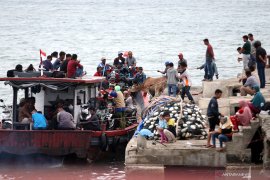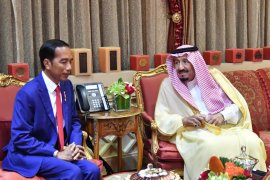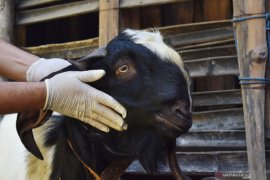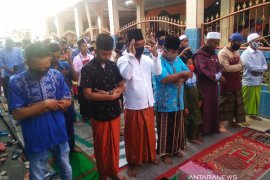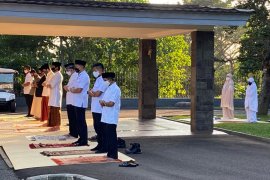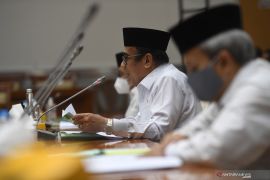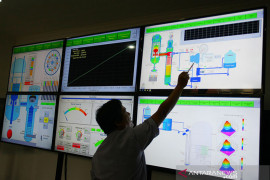President Jokowi and his family conducted the prayers in the front yard of Wisma Bayurini at the Bogor Presidential Palace complex in Bogor, West Java, while several other Muslims offered prayers at mosques near their residential areas.
This year, Idul Adha, marking the end of the Hajj pilgrimage for Muslims in the holy city of Mecca in Saudi Arabia, is being celebrated amid the ongoing COVID-19 pandemic.
Hence, this Islamic festivity is celebrated by taking all requisite safety precautions against the COVID-19 pandemic as was apparent from the masks worn by President Jokowi and the worshippers joining him when performing prayers to mark the festival of Idul Adha.
Related news: Jokowi performs Idul Adha prayer at Bogor Presidential Palace complex
In the wake of this pandemic situation, several khateebs of mosques in Indonesia holding the Idul Adha mass prayers reminded worshippers to support the government's endeavor to flatten the COVID-19 curve and to revive the country's economy.
The khateeb of Al Mujtahidin Mosque in the Abepura neighborhood of Jayapura City, Papua Province, urged his Idul Adha mass prayer worshippers to pray for the Indonesian government's success in fighting the ongoing COVID-19 pandemic.
"The Idul Adha festivity is expected to offer a momentum to drive our government's spirit to fight the novel coronavirus disease," according to Abdul Azis, a Muslim preacher, who became the khateeb of the Idul Adha mass prayers at the mosque on Friday morning.
Addressing some 400 Muslims partaking in the mass prayer and sermon at the mosque, Azis drew attention to two key religious practices of the hajj pilgrimage and "qurban" or sacrificing animals that all Muslims need to understand.
Regarding "qurban" on Idul Adha or "the Day of Sacrifice", all Muslims should strive to emulate Prophet Ibrahim’s willingness and obedience to sacrifice his son Ismail to Allah Subhanahu Wa Ta'ala, he affirmed.
Amid the COVID-19 pandemic situation, the Mujtahidin mosque goers partaking in the Idul Adha mass prayers on Friday morning wore face masks, brought along their own prayer rugs, and washed their hands as part of their duties and responsibilities in the nation's fight against COVID-19.
"May the coronavirus pandemic in Indonesia soon end, so that our community members are again able to conduct their indoor and outdoor activities normally," he stated.
Related news: Muslims should pray for Indonesia's success against COVID-19: Khateeb
Related news: Indonesians celebrating Idul Adha should follow COVID-19 protocols
A day before Idul Adha is widely celebrated across the country, Religious Affairs Minister Fachrul Razi appealed to Indonesian Muslims nationwide to continue to follow preventive measures mandated in the COVID-19 protocols while performing the Idul Adha mass prayers, slaughtering animals, and distributing meat on Friday.
Those visiting mosques and partaking in other Idul Adha mass prayer congregations should also apply social and physical distancing measures in addition to not touching items that may potentially transmit the novel coronavirus disease, he reiterated.
To this end, the tradition of giving infaq, or donation, prior to the mass prayer must also be practiced without touching the charity boxes, he emphasized.
Several mosque administrators had stopped distributing charity boxes to prevent the potential spread of the coronavirus disease among members of the congregation. In its place, they have assigned certain individuals to collect the donations by using bags.
In the wake of the COVID-19 pandemic situation, Indonesian Muslims living in areas with zero or low number of confirmed COVID-19 cases were allowed to perform the Idul Adha mass prayers at both soccer fields and mosques.
However, people living in areas, with high number of COVID-19 cases, are not allowed to perform the Idul Adha mass prayers on Friday morning, he stated.
Religious Affairs Minister Fachrul Razi’s suggestion was respected and applied by mosque administrators in the country.
The Medan Grand Mosque administrator also took the decision to not follow the practice of animal slaughter for this year's Idul Adha festivity to avoid the congregation of recipients of the sacrificed animals' meat amid this ongoing COVID-19 pandemic.
"Hence, this year, the Medan Grand Mosque administration has cancelled the ritual of animal slaughter," Hendra D. S., the mosque's secretary for welfare affairs, stated.
In the previous years, some three thousand people witnessed the slaughter of sacrificed cows and goats and awaited the distribution of donated meat at the mosque complex area.
"We do not want to take a risk amid the COVID-19 situation, so the sacrificed animals that we received, from both agencies and individuals, are all given to the North Sumatra provincial government," Hendra D. S. explained.
Unlike the Medan Grand Mosque administrator's policy, several mosque administrators throughout Indonesia maintained the ritual of animal slaughter since the country’s Muslims are accustomed to sacrificing a goat, sheep, and cow during the festivity.
Their meat is then donated to the poor people and other segments of communities.
In a broader meaning of this day of sacrifice, Muslims in Indonesia are called upon to make a real contribution to the government's fight against the COVID-19 by being consistent in practicing a healthy lifestyle and all COVID-19 preventive measures in their daily life.
Related news: Animal slaughter at Medan Grand Mosque scrapped over COVID-19 fears
Editor: Sri Haryati
Copyright © ANTARA 2020
